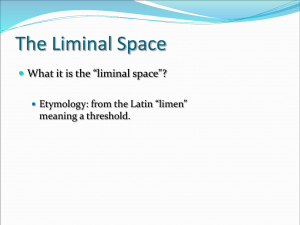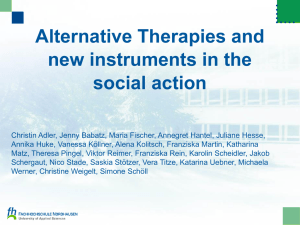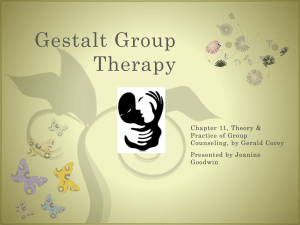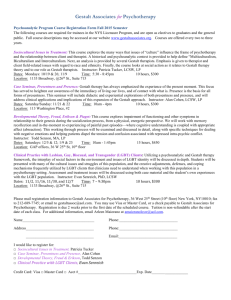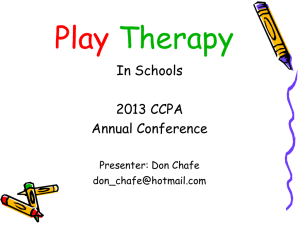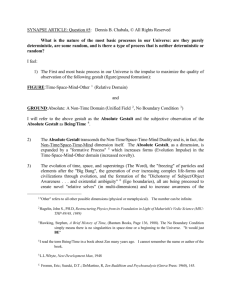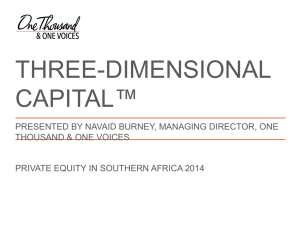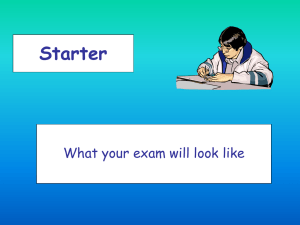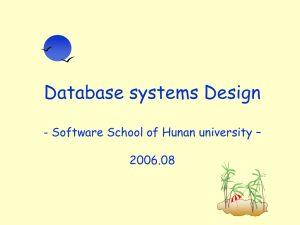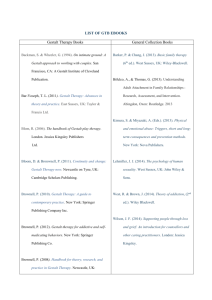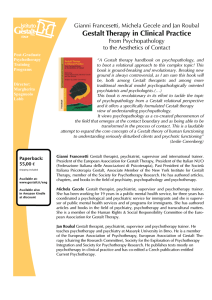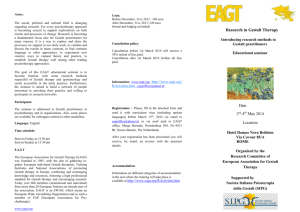Working with Larger Systems
advertisement
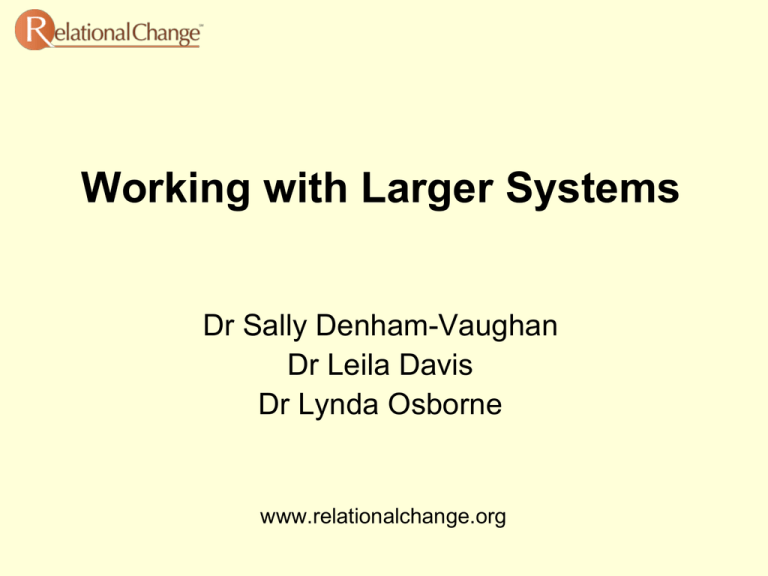
Working with Larger Systems Dr Sally Denham-Vaughan Dr Leila Davis Dr Lynda Osborne www.relationalchange.org A Relational Framework Anchors our Work Self Other Situation 2 Theoretical Concepts that Inform our Work in Organisations Phenomenology Resilience Positive Psychology Embodiment Self Dialogic Relating Deep Democracy Other Presence Situation Field Relational Systems Theory Complexity Storytelling 3 An Organisational Self One Map. • Id : Less visible internal dynamics of an organisation. Usually less in awareness and not articulated. The ‘sensing’ function • Ego: Most visible part - what the organisation says it does – or does. What is supported? • Personality: Sedimented ways of being which are linked to the prevailing narrative and culturethese sustain the organisation. The Relational Movement • Intrinsic/decentralised Vs Extrinsic organising strategy : TRC/RM/RC • Community Action Networks- CANs • Communities of Practice- COPs (Shared Situated Relational Leadership - Jean Lave and Etienne Wenger). • Relational Public Narrative: SOS Exploring our wider Community • The centre of room represents the heart and soul of the Gestalt Community • Position yourself at a point in the room where you feel in relation to that • If the space is empty….experiment with framing it as a ‘Liminal Space’ that has no pressure to fill. Exploring our wider Community • Speak from your position so we hear voices from the margins and from the centre…represent all voices • These voices are the ‘form’ of this Situation/Gestalt Community right now Exploring our wider Community • Form groups of ‘X’ from people nearest to you with a facilitator • Question 1 :What was most vivid for you? (Brief answers…not discussion) Exploring our wider Community • Question 2: • “What is my personal contribution/(leadership) that I bring to this community? • “What would catalyse me to take up greater leadership in this Community?”. • “What could this small group bring to nourish the Gestalt Community: these are the leadership gifts we have to share” Exploring our wider Community • Create a group statement: Brief • Small groups share: Facilitator reads out to the larger community. Exploring our wider Community • Experiment with making the moves you just talked about in your small group within the large group-where do you stand now? • How does the community change as leadership, (decisions, risks, responsibilities), is shared? (Shared NOT ‘equalised/rotated’…we all have unique strengths and contributions). • What different movements/actions do you as a shared leadership community now feel called to make: what might you do if this new form were in existence ? Exploring our wider Community “Thought for the Day”: in pairs • What actions am I willing to commit to in order to sustain the gestalt community and protect the community’s future? Hear from some couples. References • • • • • • Chidiac, M.A. and Denham-Vaughan, S. “The Process of Presence”. British Gestalt Journal, (2007), 16, (1), 9-19. Denham-Vaughan, S. “Will and Grace: The Integrative Dialectic in Gestalt Psychotherapy Theory and Practice”. British Gestalt Journal, (2005a), 14, (1), 5-14. Denham-Vaughan, S. “The Liminal Space and Twelve Action Practices for Gracious Living”, British Gestalt Journal, (2010d), 19, (2), 34-45 Denham-Vaughan, S. & Chidiac, M-A. (2010) ‘Dialogue Goes to Work: Relational Organisational Gestalt’, in Hycner, R. and Jacobs, L. (Eds). Relational Approaches in Gestalt Therapy, Gestalt Press, Cambridge, MA. Denham-Vaughan, S. and Chidiac, M-A. “SOS: A relational orientation towards social inclusion”. (2013), Mental Health and Social Inclusion, 17, (2), 100-107 Clark, M. Denham-Vaughan, S and Chidiac, M-A. “A relational perspective on public sector leadership and management”. (2014), International Journal of Public Sector Leadership, 10, (1), 4-16
